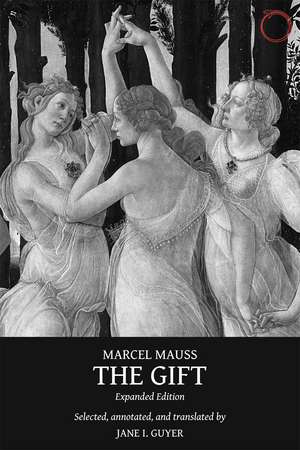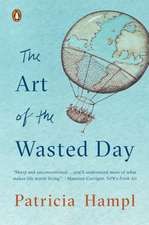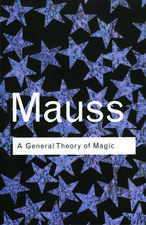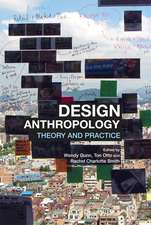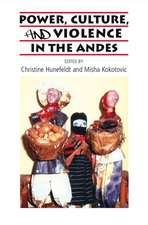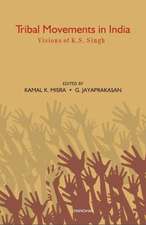The Gift: Expanded Edition
Autor Marcel Mauss Traducere de Jane I. Guyeren Limba Engleză Paperback – 15 mai 2016
Scan down a list of essential works in any introduction to anthropology course and you are likely to see Marcel Mauss’ masterpiece, The Gift. With this new translation, Mauss’ classic essay is returned to its original context, published alongside the works that framed its first publication in the 1923–24 issue of L’Année Sociologique. With a critical foreword by Bill Maurer and a new introduction by translator Jane Guyer, this expanded edition is certain to become the standard English version of the essay—a gift that keeps on giving.
Included alongside the “Essay on the Gift” are Mauss’ memorial accounts of the work of Émile Durkheim and his colleagues who were lost during World War I, as well as his scholarly reviews of influential contemporaries such as Franz Boas, J. G. Frazer, Bronislaw Malinowski, and others. Read in the context of these additional pieces, the “Essay on the Gift” is revealed as a complementary whole, a gesture of both personal and political generosity: Mauss’ honor for his fallen colleagues; his aspiration for modern society’s recuperation of the gift as a mode of repair; and his own careful, yet critical, reading of his intellectual milieu. The result sets the scene for a whole new generation of readers to study this essay alongside pieces that exhibit the erudition, political commitment, and generous collegial exchange that first nourished the essay into life.
Included alongside the “Essay on the Gift” are Mauss’ memorial accounts of the work of Émile Durkheim and his colleagues who were lost during World War I, as well as his scholarly reviews of influential contemporaries such as Franz Boas, J. G. Frazer, Bronislaw Malinowski, and others. Read in the context of these additional pieces, the “Essay on the Gift” is revealed as a complementary whole, a gesture of both personal and political generosity: Mauss’ honor for his fallen colleagues; his aspiration for modern society’s recuperation of the gift as a mode of repair; and his own careful, yet critical, reading of his intellectual milieu. The result sets the scene for a whole new generation of readers to study this essay alongside pieces that exhibit the erudition, political commitment, and generous collegial exchange that first nourished the essay into life.
| Toate formatele și edițiile | Preț | Express |
|---|---|---|
| Paperback (5) | 83.87 lei 3-5 săpt. | |
| W. W. Norton & Company – 31 iul 2000 | 83.87 lei 3-5 săpt. | |
| HAU – 15 mai 2016 | 102.05 lei 3-5 săpt. | +14.83 lei 4-10 zile |
| Taylor & Francis – 11 oct 2001 | 108.77 lei 3-5 săpt. | +10.37 lei 4-10 zile |
| Martino Fine Books – 12 iul 2011 | 120.87 lei 38-44 zile | |
| Martino Fine Books – 20 apr 2011 | 122.86 lei 38-44 zile | |
| Hardback (2) | 189.70 lei 6-8 săpt. | |
| Bibliotech Press – 14 iul 2020 | 189.70 lei 6-8 săpt. | |
| Taylor & Francis – 11 oct 2001 | 627.40 lei 6-8 săpt. |
Preț: 102.05 lei
Nou
Puncte Express: 153
Preț estimativ în valută:
19.53€ • 20.18$ • 16.25£
19.53€ • 20.18$ • 16.25£
Carte disponibilă
Livrare economică 04-18 martie
Livrare express 15-21 februarie pentru 24.82 lei
Preluare comenzi: 021 569.72.76
Specificații
ISBN-13: 9780990505006
ISBN-10: 0990505006
Pagini: 248
Dimensiuni: 152 x 229 x 20 mm
Greutate: 0.39 kg
Editura: HAU
Colecția HAU
ISBN-10: 0990505006
Pagini: 248
Dimensiuni: 152 x 229 x 20 mm
Greutate: 0.39 kg
Editura: HAU
Colecția HAU
Notă biografică
Marcel Mauss (1870–1950) was a French sociologist and founding figure of twentieth-century anthropology. Jane I. Guyer is the George Armstrong Kelly Professor in the Department of Anthropology at Johns Hopkins University.
Cuprins
Foreword: Puzzles and Pathways by Bill Maurer
Translator’s Introduction: The Gift that Keeps on Giving by Jane I. Guyer
Part I: In Memoriam
In Memoriam: The Unpublished Work of Durkheim and His Collaborators
Part II: Essay on the Gift: The Form and Sense of Exchange in Archaic Societies
Introduction: Of the Gift, and in Particular of the Obligation to Return Presents
Chapter 1: The Gifts Exchanged and the Obligation to Return Them (Polynesia)
Chapter 2: The Extent of This System: Liberality, Honor, Money
Chapter 3: Survivals of These Principles in Ancient Law and Ancient Economies
Chapter 4: Conclusion
Part III: Selected Reviews
A Selection of Reviews by Marcel Mauss
Translator’s Introduction: The Gift that Keeps on Giving by Jane I. Guyer
Part I: In Memoriam
In Memoriam: The Unpublished Work of Durkheim and His Collaborators
Part II: Essay on the Gift: The Form and Sense of Exchange in Archaic Societies
Introduction: Of the Gift, and in Particular of the Obligation to Return Presents
Chapter 1: The Gifts Exchanged and the Obligation to Return Them (Polynesia)
Chapter 2: The Extent of This System: Liberality, Honor, Money
Chapter 3: Survivals of These Principles in Ancient Law and Ancient Economies
Chapter 4: Conclusion
Part III: Selected Reviews
A Selection of Reviews by Marcel Mauss
Recenzii
"Among the most welcome features of this third English translation of Mauss’s classic is Jane Guyer’s decision to re-embed the Essai sur le don: forme et raison de l’échange dans les sociétés archaiques in its original setting in the journal L’Année Sociologique as published in 1925. Her translation and discussion of some of the original framing materials (twenty pages of moving tributes to deceased colleagues before the Essai, and another twenty pages of book reviews at the end) demonstrate more effectively than the earlier English editions both the significance of the timing of this publication in the aftermath of the Great War and its centrality to the Durkheimian school. It was not possible to include all of the voluminous book reviews, and some of the excerpts are extremely brief, but, with the help of research assistants, Guyer has managed to track down the original English of most of Mauss’s quotations. Unlike previous translators, she contributes a substantial introduction, in which she elaborates on the difficulties of rendering Mauss’s text in English."
"Guyer’s decision to produce a new translation arose from a conviction that this contextualization—particularly the memorial and select reviews from Mauss—is critical for understanding The Gift itself.
Mauss, Guyer argues, was writing out of an urgent need to find inspiration from other parts of the world, that Europeans might learn “to confront one another without massacring each other” (2016: 197). The new translation thus importantly changes the emphasis within the text. What was a round-the-world-ticket collection of notable instances of exchange—the accuracy and veracity of which have already been endlessly debated—emerges as a passionate political treatise written at a poignant moment in European history."
"When is ethnographic theory? At a time at which so much of our theoretical development involves rethinking our disciplinary past, our answer might involve a kind of museum archaeology. Just as the archaeologist understands a museum object as the duration of an idea, so too anthropological knowledge can be conceived as a form of revisitation: a mediated, political and transformative return (Hicks 2016). In 1972, Marshall Sahlins wrote that Mauss’s Essay ‘remains a source of an unending ponderation for the anthropologist du metier, compelled as if by the hau of the thing to come back to it again and again’ (Sahlins 1972: 149). Today, we might use Mauss’s account of archaism to reimagine residuality and reciprocity. Mauss and Guyer show us that the translator is always both donor and recipient. There is a force, just like the force in the gift, in anthropological knowledge. The return of ethnographic theory brings new obligations to our disciplinary past, through the fulfilment of which that past and our present become less stable than we might imagine."
Descriere
Descriere de la o altă ediție sau format:
2011 Reprint of 1954 American Edition. Full facsimile of the original edition, not reproduced with Optical Recognition Software. This is perhaps the first systematic study of the custom, widespread in primitive societies from ancient Rome to present-day Melanesia, of exchanging gifts. The gift is conceived as a transaction forming part of all human, personal relationships between individuals and groups. These gift exchanges are at the same time moral, economic, juridical, aesthetic, religious, mythological and social phenomena. A classic work.
